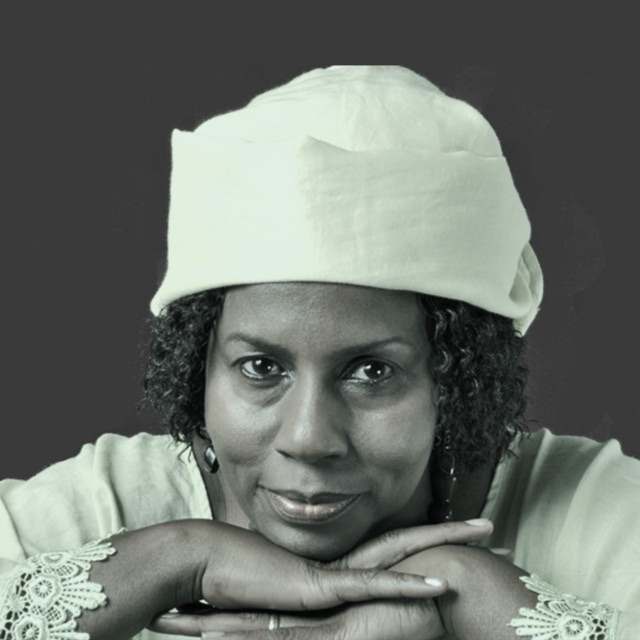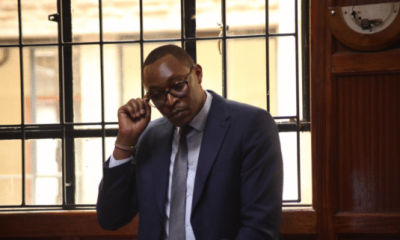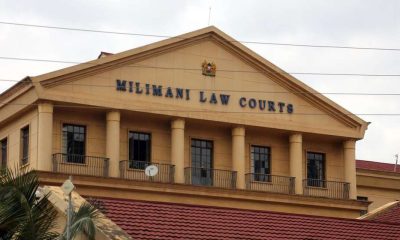Entertainment
Safaricom Accused of Pirating Gospel Music and Exploiting Artists
The lawsuit, filed at the Milimani Commercial High Court and set for hearing in November, centers on Safaricom’s popular Skiza Tunes service – a platform that allows subscribers to set personalized music as their ring-back tones.

Telecom giant faces Sh15 million lawsuit over alleged unauthorized use of 39 gospel songs on Skiza Tunes platform
Published: June 7, 2025
Kenya’s largest telecommunications company, Safaricom, is facing serious allegations of music piracy in a high-stakes copyright lawsuit that has exposed the murky world of digital music distribution and artist compensation in the country.
Gospel musician Jemmimah Thiong’o, once a dominant force on Kenyan airwaves, is seeking Sh15 million in damages from the telecom giant, accusing it of illegally profiting from 39 of her songs for nearly a decade without paying her a single shilling in royalties.
The Heart of the Dispute
The lawsuit, filed at the Milimani Commercial High Court and set for hearing in November, centers on Safaricom’s popular Skiza Tunes service – a platform that allows subscribers to set personalized music as their ring-back tones.
What began as a demand for Sh5 million in 2016 has escalated to Sh15 million as Thiong’o claims her financial losses have continued to mount.
Among the contested songs are some of Thiong’o’s biggest hits, including “Mipango Ya Mungu,” “Alinitua,” “Pendo la Ajabu,” and “Mganga” – tracks that helped define Kenya’s gospel music scene in the early 2000s.
“The defendant has unjustifiably and to the detriment of the plaintiffs enriched itself,” Thiong’o argues in court documents, claiming that Safaricom has “reproduced, altered, modified, mutilated, distributed, offered for sale, stored, communicated to the public, pirated, and generally used and benefited from” her musical works without authorization.
The Complex Web of Music Aggregators
Safaricom’s defense reveals a complex ecosystem of music distribution that may be failing artists across Kenya. The company admits to using Thiong’o’s songs on its platform but claims it obtained them legitimately through two music aggregators: Liberty Afrika Technologies and Cellulant Kenya Limited, both licensed as Premium Rate Service Providers (PRSPs).
Under the arrangement, Safaricom retained 60 percent of total revenue generated from the songs, with 40 percent going to the PRSPs, who were supposed to pay the remaining portion to rights holders after their own deductions.
However, this system appears to have broken down spectacularly in Thiong’o’s case. Despite owning rights to 80 percent of the disputed songs (with collaborator Robert Kimanzi owning 20 percent), neither artist has received any compensation from the platform that has been selling their music since 2009.
Broken Promises and Unpaid Advances
The case has exposed questionable practices within the music aggregation industry. Jennifer Wanjira, former Rights Acquisition Manager at Cellulant, revealed in her witness statement that the company had advanced Thiong’o Sh50,000 against future royalties in 2012 – money that remains unpaid as the songs allegedly failed to generate sufficient revenue to cover the advance.
Meanwhile, the Music Copyright Society of Kenya (MCSK), also named in the suit, claims that Liberty Afrika continued exploiting Thiong’o’s music beyond their licensed period, which expired in 2013, without making any payments to the rights organization.
The Human Cost
Beyond the financial implications, Thiong’o’s case highlights the devastating personal impact of copyright infringement on artists.
In her court filings, the gospel star describes suffering “mental anguish” and “ridicule” as her inability to monetize her own music has damaged her reputation and business relationships.
“I have suffered ridicule and embarrassment resulting from the financial losses and the fact that my struggle to make ends meet has caused people to take me less seriously,” she states, adding that former clients have shunned her and denied her business opportunities.
The artist, who has not released a new album in 15 years, argues that Safaricom’s unauthorized distribution of her music has prevented her from selling her works for profit, effectively destroying her ability to earn from her creative output.
Industry-Wide Implications
This case may represent just the tip of the iceberg in Kenya’s digital music industry.
Safaricom’s legal representative, Angela Karamba, defended the company’s reliance on aggregators, citing the “sheer number of artists both locally and internationally” and the complexity of different rights that accrue to various parties from copyright works.
However, critics argue that this hands-off approach has created a system where artists can be exploited while telecommunications companies and aggregators profit from their creative works.
The case also raises questions about due diligence in the digital music space.
Thiong’o argues that Safaricom should have conducted proper investigations to identify rightful shareholders of intellectual property when acquiring songs from aggregators.
Legal Precedent at Stake
As the case heads to court later this year, it could set important precedents for how digital platforms handle music rights in Kenya.
The outcome may determine whether telecommunications companies can continue to rely solely on aggregators for content acquisition or whether they must take more direct responsibility for ensuring artists are fairly compensated.
The lawsuit also seeks to compel Safaricom to provide a full accounting of all money received from the sale of Thiong’o’s music, potentially revealing the true scope of revenue generated from her works over the past decade.
The Bigger Picture
This case occurs against a backdrop of ongoing struggles by Kenyan artists to monetize their work in the digital age.
While platforms like Skiza Tunes have made music more accessible to consumers, questions remain about whether the benefits are being fairly distributed to the creators who make it possible.
For Safaricom, a company that has built its brand on connecting Kenyans and supporting local talent, the case presents a significant reputational challenge. How it resolves this dispute may influence its relationships with artists and content creators across the country.
As the November hearing approaches, the case of Jemmimah Thiong’o vs. Safaricom promises to shed light on the often-hidden mechanics of Kenya’s digital music economy and determine whether one of the country’s most successful gospel artists will finally receive compensation for nearly a decade of unauthorized use of her creative works.
The case highlights broader issues of artist compensation and copyright protection in Kenya’s rapidly evolving digital entertainment landscape. Safaricom has not responded to requests for additional comment beyond their court filings.
Kenya Insights allows guest blogging, if you want to be published on Kenya’s most authoritative and accurate blog, have an expose, news TIPS, story angles, human interest stories, drop us an email on [email protected] or via Telegram
-

 Grapevine7 days ago
Grapevine7 days agoAlleged Male Lover Claims His Life Is in Danger, Leaks Screenshots and Private Videos Linking SportPesa CEO Ronald Karauri
-

 Lifestyle1 week ago
Lifestyle1 week agoThe General’s Fall: From Barracks To Bankruptcy As Illness Ravages Karangi’s Memory And Empire
-

 Grapevine3 days ago
Grapevine3 days agoRussian Man’s Secret Sex Recordings Ignite Fury as Questions Mount Over Consent and Easy Pick-Ups in Nairobi
-

 Investigations2 weeks ago
Investigations2 weeks agoEpstein Files: Sultan bin Sulayem Bragged on His Closeness to President Uhuru Then His Firm DP World Controversially Won Port Construction in Kenya, Tanzania
-

 News2 weeks ago
News2 weeks agoAUDIT EXPOSES INEQUALITY IN STAREHE SCHOOLS: PARENTS BLED DRY AS FEES HIT Sh300,000 AGAINST Sh67,244 CAP
-

 Business2 weeks ago
Business2 weeks agoKRA Can Now Tax Unexplained Bank Deposits
-

 Investigations1 week ago
Investigations1 week agoEpstein’s Girlfriend Ghislaine Maxwell Frequently Visited Kenya As Files Reveal Local Secret Links With The Underage Sex Trafficking Ring
-

 News1 week ago
News1 week agoState Agency Exposes Five Top Names Linked To Poor Building Approvals In Nairobi, Recommends Dismissal After City Hall Probe



























